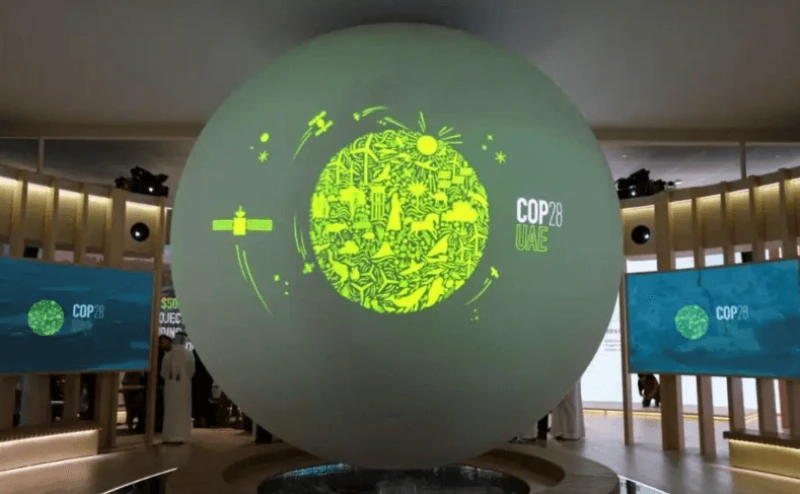To reach climate change targets set at COP28, we need agricultural biotechnology to help decarbonize economies around the world
To reach climate change targets set at COP28, we need agricultural biotechnology to help decarbonize economies around the world


Climate change is affecting communities worldwide, and innovative solutions are more urgently needed than ever. As leaders from around the world gather in Dubai for the United Nations climate talks known as COP28, they must recognize that many tangible solutions already exist to address climate change, but market and policy uncertainty hamper implementation.
Among the arsenal of tools at our disposal, biotechnology emerges as a potent force in achieving climate change mitigation, adaptation, and resilience. From engineering crops resistant to changing weather patterns to developing biobased materials, biotechnology offers a path forward against the environmental challenges we face – and world leaders need to create clearer market pathways to ensure their uptake.
However, there are steps that need to be taken if we want to fully leverage the power of biotechnology to decarbonize economies worldwide and meet the climate challenge. First and foremost, governments must work to reduce unnecessary regulatory barriers that hinder further adoption of biotech innovations. The Biden Administration has stressed the importance of addressing climate change in the rollout of the Fifth National Climate Assessment; now this research should mobilize policymakers to take tangible action, whether embracing incentives for biotechnology or utilizing government procurement programs to accelerate the pace of production and adoption of biobased products.
This is an excerpt. Read the original post here

 | Videos | More... |

Video: Nuclear energy will destroy us? Global warming is an existential threat? Chemicals are massacring bees? Donate to the Green Industrial Complex!
 | Bees & Pollinators | More... |

GLP podcast: Science journalism is a mess. Here’s how to fix it

Mosquito massacre: Can we safely tackle malaria with a CRISPR gene drive?

Are we facing an ‘Insect Apocalypse’ caused by ‘intensive, industrial’ farming and agricultural chemicals? The media say yes; Science says ‘no’
 | Infographics | More... |

Infographic: Global regulatory and health research agencies on whether glyphosate causes cancer
 | GMO FAQs | More... |

Why is there controversy over GMO foods but not GMO drugs?

How are GMOs labeled around the world?

How does genetic engineering differ from conventional breeding?
 | GLP Profiles | More... |

Alex Jones: Right-wing conspiracy theorist stokes fear of GMOs, pesticides to sell ‘health supplements’




 Viewpoint — Fact checking MAHA mythmakers: How wellness influencers and RFK, Jr. undermine American science and health
Viewpoint — Fact checking MAHA mythmakers: How wellness influencers and RFK, Jr. undermine American science and health Viewpoint: Video — Big Solar is gobbling up productive agricultural land and hurting farmers yet providing little energy or sustainabilty gains
Viewpoint: Video — Big Solar is gobbling up productive agricultural land and hurting farmers yet providing little energy or sustainabilty gains Fighting deforestation with CO2: Biotechnology breakthrough creates sustainable palm oil alternative for cosmetics
Fighting deforestation with CO2: Biotechnology breakthrough creates sustainable palm oil alternative for cosmetics Trust issues: What happens when therapists use ChatGPT?
Trust issues: What happens when therapists use ChatGPT? 30-year-old tomato line shows genetic resistance to devastating virus
30-year-old tomato line shows genetic resistance to devastating virus California, Washington, Oregon forge immunization alliance to safeguard vaccine access against federal undermining
California, Washington, Oregon forge immunization alliance to safeguard vaccine access against federal undermining The free-range chicken dilemma: Better for birds, but with substantial costs
The free-range chicken dilemma: Better for birds, but with substantial costs ‘You have to treat the brain first’: Rethinking chronic pain with Sanjay Gupta
‘You have to treat the brain first’: Rethinking chronic pain with Sanjay Gupta
